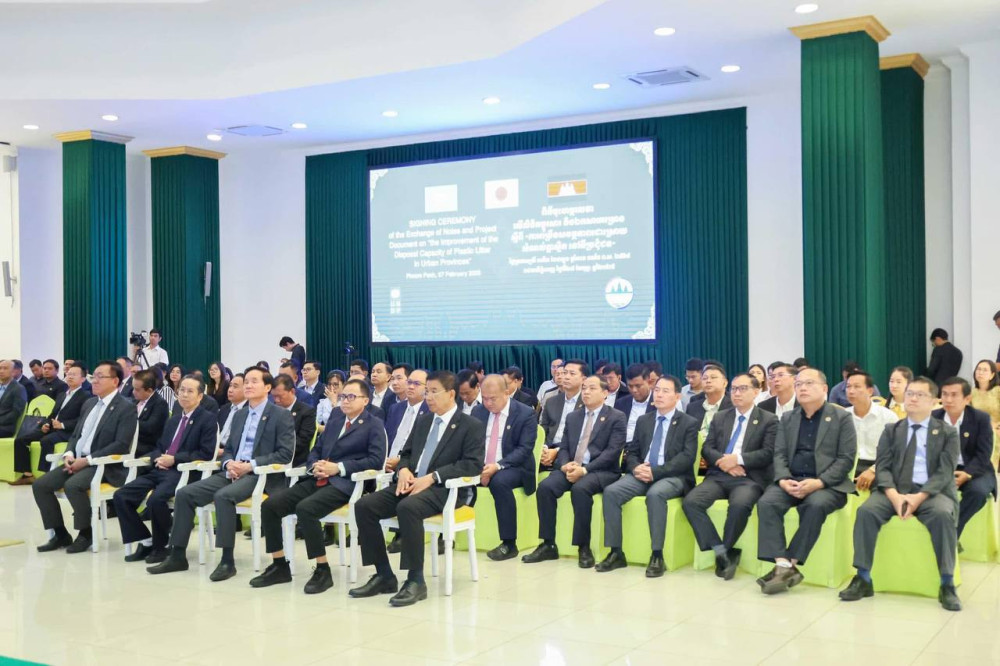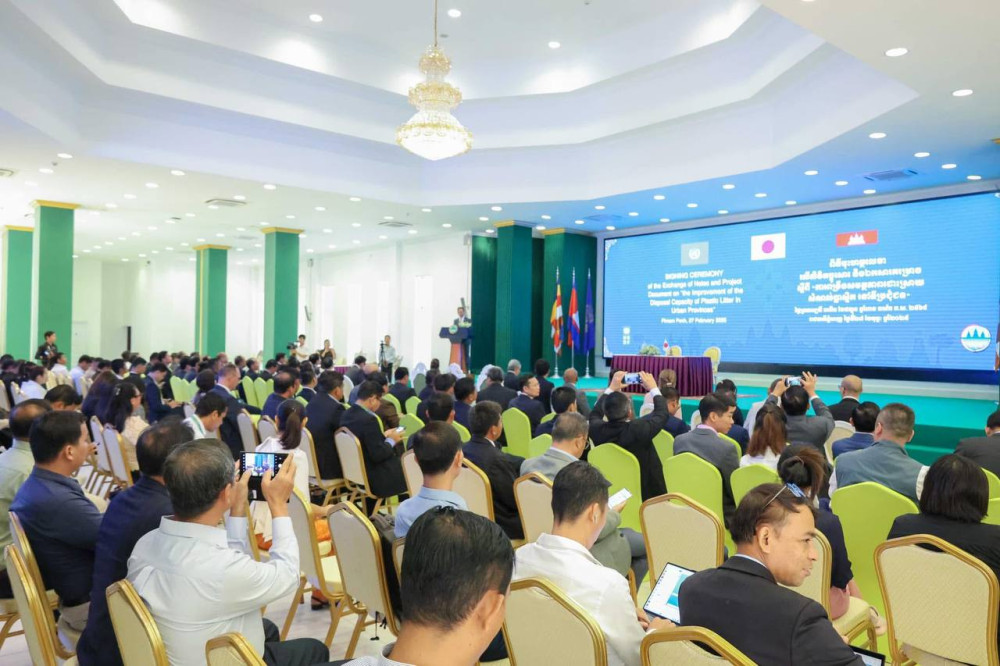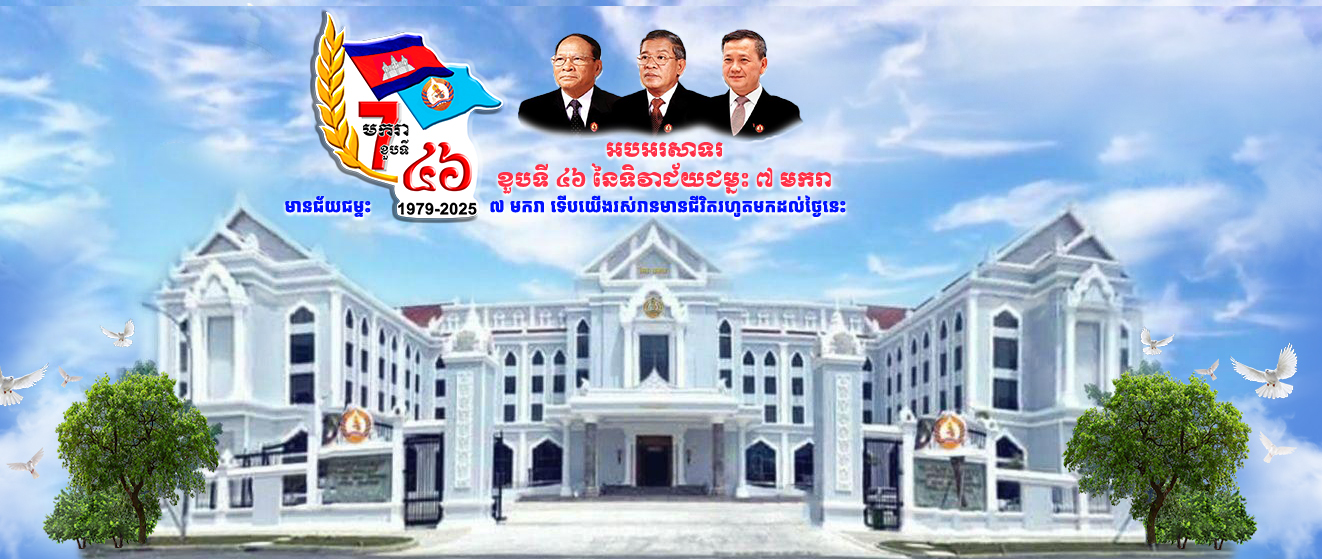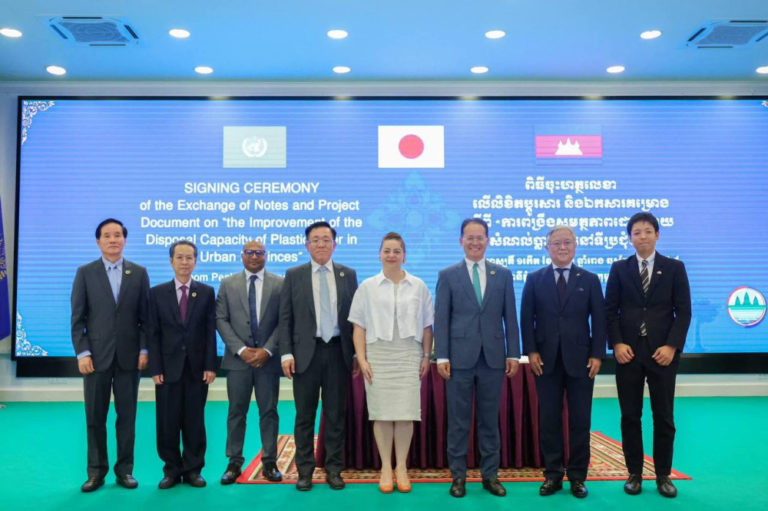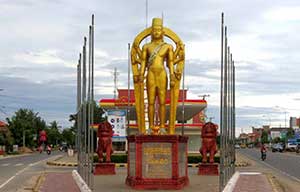The Improvement of the Disposal Capacity of Plastic Litter in Urban Provinces project officially launched in Phnom Penh on Feb. 27 under the presidency of H.E. Dr. Eang Sophalleth, Cambodian Minister of Environment (MoE).
H.E. UENO Atsushi, Japanese Ambassador to Cambodia, and Ms. Alissar CHAKER, Resident Representative of the United Nations Development Programme (UNDP) in Cambodia were also present at the launching ceremony.
The project aims to prevent and minimise plastic waste pollution on land and in the ocean through the promotion of the 4R framework (Refuse, Reduce, Reuse, and Recycle).
H.E. Dr. Sophalleth Eang explained that there is an urgent need to reduce the volume of plastic use in Cambodia and create an environment where waste is properly managed, recovered, reused, and/or recycled. This project will contribute significantly to the National Circular Strategy on Environment 2023-2028 and will complement the corresponding campaigns – “Today I don’t use plastic bag’, ‘Clean up Cambodia, Khmer can do’, and ‘National Roads Plastic-Free”.
“The government of Japan is providing a grant for the value of 378 million Japanese yen to promote effective production, consumption, and waste management of plastic in Cambodia,” said Japanese Ambassador H.E. UENO Atsushi said,. “UNDP has a strong record of supporting host governments in the achievement of environmental sustainability and inclusive development around the world, including in Cambodia. I believe that, with Japan’s experience and UNDP’s expertise, we can support Cambodia’s efforts in plastic management”.
For her part, Ms. Alissar CHAKER said, “UNDP has been partnering with the Ministry of Environment and the Embassy of Japan since 2021 to establish the foundations for reducing plastic pollution in Cambodia. Building on past achievements and leveraging UNDP’s regional and global expertise, we hope that this project will trigger behavioural change at scale and engage the private sector to drive innovation and leverage finance for scaling up proven circular economy business models, facilitating networking, sharing of experience and lessons learned, and capitalising on women and youth engagement throughout its interventions”.
